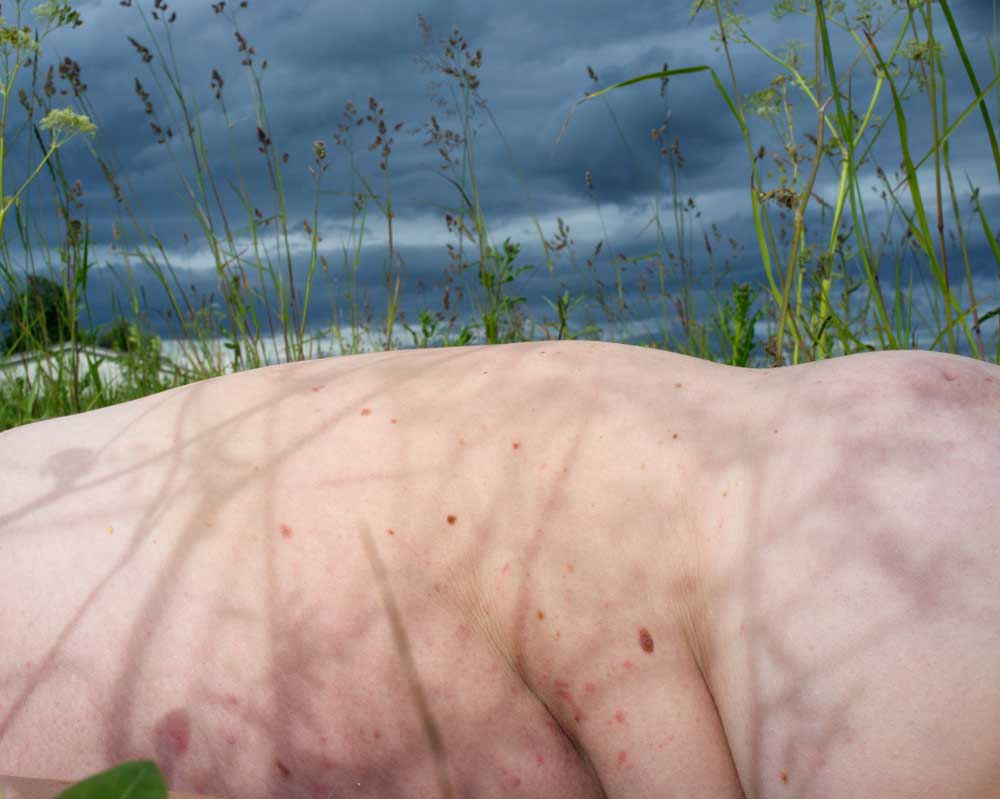Task 36 – Turn the setting
Task 36
Change perspective

Inderøy, Norway, 2016. Photo: Torkil Færø
Problem
Fixed mindset
When a calf becomes an adult cow, she pays attention to the other cows, discovers who is stronger or weaker than herself and finds her place in the hierarchy. She keeps this place the rest of her life and often it is the same one that her mother had. She observes her mother closely and learns who she yields to and who she dominates.
The cows do not have the mental capacity to challenge the position that they have. We do. However, we don’t often use it. A lot of people think that they are exactly what they are and it doesn’t cross their minds that they could be anything beyond that. This is an example of having a fixed mindset (see page 205).
It is not unusual to be under the influence of a growth mindset in some areas and a fixed one in other ones. I had a growth mindset during all of those years I worked systematically to become a better photographer while at the same time I was convinced that I would never be a leader or give a public talk.
A fixed mindset says: Why try if you aren’t going to manage to pull it off anyway? You don’t have the talent and you lack what you need to succeed. The people who do succeed have inborn qualities that you don’t have. Thinking like this is why we pick easy tasks that we know we can do instead. We also would rather get a pat on our backs than receive criticism. We are so afraid of failing that we shy away from any challenge. We give up as soon as we meet any resistance. We blame our genetics and upbringing and feel upset when anyone else succeeds since we ourselves are on the losing side.
It isn’t so strange that this way of thinking is widespread. After all, until quite recently, medical science believed that our personality and capacity was largely limited by our genetics and circumstances. New research shows that the brain is highly plastic. We can change ours- elves to be the person we wish to become.
A person with a fixed mindset thinks that there is no point in taking photographs, that we won’t get better no matter what we do, that we don’t have an eye for subjects and technique is impossible to learn. And that we should never show the pictures we take because we will just expose ourselves as bad photographers. Fortunately, a growth mindset can be learned, and become a habit.
Do you know someone with a fixed setting? What about you?
How relevant is this issue for you on a scale of 1 to 6?:
Solution
Growth mindset
I was terrified at just the thought of standing in front of other people and opening my mouth, even in the smallest of gatherings. I used every trick I could to avoid it, never put my hand up in school and only had negative experiences when speaking up until I was 45. As a pho- tography student, I dreaded doing the round of participants giving a simple introduction of themselves. With a pounding heart and shaky voice, I said as little as I possibly could: “I am here because I like to photograph.”
This changed for the better when I learned about what a growth mindset was. I decided to challenge myself in my biggest problem area. I had to tolerate testing my own comfort zone after all since I, in photography workshops, tempted others out of theirs. Now I have become used to speaking in front of groups of over 100 people. With my heart in my throat, I have been on live TV and radio several times. If anyone had said that I would have done any of this when I was 45, I would have probably thrown up on the spot.
People don’t just succeed based on their genes and upbringing. The extent to which they possess a growth mindset is perhaps even more important. Instead of fearing that we will fail, we could value the possibility to learn from the mistakes we make. It is more important to learn than it is to appear smart. A mistake becomes a problem only if we don’t learn from it. With a growth mindset we welcome criticism. We learn more from criticism than we do from a pat on the back. We resolve to continue on even if we meet resistance, and we rejoice in the success of others since they have succeeded in something we can study and learn from.
We can change from having a fixed mindset to having a growth mindset. Count on it being uncomfortable at first. When we grow through doing new, challenging things, we feel growing pains. These pains can be so palpable that we want to back out of doing it.
The pain of not growing is, on the contrary, dull and chronic. After we have gotten used to it, we will only notice it being as a vague discomfort, but over time it will wear us out. The most important settings are not on the camera; they are in our heads. If our pictures aren’t good, we might have to change the settings in our heads.
PHOTO ASSIGNMENT:
Photograph yourself or a favourite object, this time from a different angle and distance.
On a scale of 1 to 6, how useful was this task for you?:
BOOK SUGGESTION: Mindseth by Carol Dweck
❞Fun is only possible if you have a mindset that allows it.
Morten Harket
❞ Everything we hear is an opinion, not a fact. Everything we see is a perspective, not the truth.
Marcus Aurelius
❞ When there’s a set- back, someone with a fixed mindset will start thinking, ’Maybe I don’t have what it takes?’ They may get defensive and give up. A hallmark of a successful person is that they persist in the face of obstacle, and often, these obstacles are blessings in disguise.
Carol S. Dweck
[note_editor]

